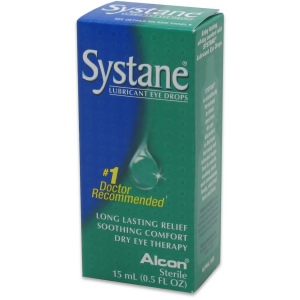There are many eye drops that are available over-the-counter in most pharmacies and supermarkets. Though most are soothing, they are usually unnecessary, since the normal eye is able to take care of itself. There may still be times when they are helpful for mild irritations and allergies.
Over-the-counter drops primarily fall into three categories: decongestants, lubricants, and eyewashes. within these groups, most brands have the same basic ingredients. Thus, the most expensive product usually offers little advantage over less expensive products.
You should not treat a red, scratchy eye for more than a day or two, as these symptoms could suggest a more serious problem, for which a delay in seeing an ophthalmologist could result in permanent vision loss.
Decongestants whiten the eye. Eyes become “bloodshot” when the blood vessels in the outer membrane (conjunctiva) dilate. Cause may include: allergies to pollen, irritation from smoke and pollution, and tiredness after prolonged reading.
If the cause of bloodshot eyes is not serious, decongestants will make them look and feel better by shrinking the dilated blood vessels. Some decongestants also contain antihistamine which will relieve itching.the effect usually lasts two to four hours.
Decongestant eye drops should not be used more than three to four times a day. Excess may cause “rebound”- the eyes become even more red and irritated when the drops are stopped. Decongestant eye drops may also exacerbate some forms of glaucoma.

Lubricating drops, also known as artificial tears, provide moisture and lubrication to outer surfaces of the eyes to relieve symptoms of dryness and irritation. They are especially useful for people suffering from dry eye syndrome. These drops do not shrink the blood vessels, and may be used more frequently than the decongestant eye drops. Some people may develop allergies to preservatives in the drop. Should this occur, preservative-free drops are available.
Eye washes, sometimes called “collyrium” drops, do not decongest or lubricate. They contain various compounds such as boric acid and methanol, which may sooth the eye. These drops have very little use, and are usually not recommended.
When in doubt, contact your eye care professional for more information.